Ryan minor to be tried as an adult in Pradyuman's murder. Media impact?
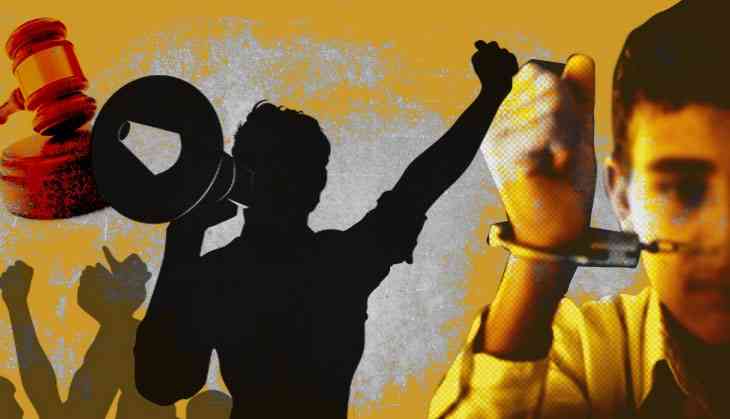
The Juvenile Justice Board (JJB) on Wednesday declared that the 16-year-old accused of killing seven-year-old Pradyuman Thakur on the premises of Ryan International School will be tried as an adult and will undergo a regular trial in a court.
The juvenile accused will be produced in court on Friday, the board said. If convicted, he will stay in a correctional home till he is 21, and then be transferred to a jail.
Seven-year-old Pradyuman was found with his throat slit outside the school's washroom on 8 September.
The Central Bureau of Investigation (CBI) in October arrested the Class 11 student based on CCTV footage recovered from outside the school washroom that showed that the teen was the last one leaving the washroom. The agency said the teen had confessed to killing Pradyuman with the motive to delay an approaching examination and a parent-teacher meeting.
Pradyuman's parents had appealed that the teenager be tried as an adult under the amended Juvenile Justice Act. Pradyuman’s father told reporters – “I thank the judiciary for the decision. We always knew that the journey is long but we will go till the end to get justice for my child and all other children who might be vulnerable.”
After the Nirbhaya gangrape case where one of the juvenile accused was let off after serving the maximum sentence of three years, the Juvenile Justice Act was amended in 2016 to accommodate juveniles, of the age 16 to 18, to be tried as adults in the case of certain crimes that are punishable by more than seven years of imprisonment, which are heinous crimes.
The Act also says that the juvenile must be assessed by a panel of psychoanalysts and medical experts who will make recommendations to the JJB.
In the case of the juvenile accused of Pradyuman’s murder, the panel found the teen to be 'aggressive' and found him to be 'completely aware of the consequences of the offence and the circumstances in which he allegedly committed the offence'.
Pradyuman's father's application to the JJB, that the accused be tried as an adult, was considered by the board.
Amendment to the Juvenile Justice Act
The amendment in the Act was tabled following the Nirbhaya gangrape case, under immense pressure from the media and women’s rights groups who believed the juvenile in the case deserved a harsher punishment.
However, given the juvenile justice laws at the time, the accused could not have been tried or punished as an adult.
Many juvenile justice activists also question whether the amended provision truly serves a purpose since the scope for reform and rehabilitation of convicted minors gets taken away by the justice system.
Anant Asthana, a juvenile justice lawyer, told Catch, “This provision serves no purpose in the larger scheme of things because at the end of the day what you are doing is creating more criminals in society. You are taking away the scope of reforming and rehabilitating minors. There are four and a half-year-olds committing heinous crimes, will you also try them as adults? Will you also send them to jail? And because these are boys of 15, 16, 17 years of age, you think it is fine to try them as adults? No. These are also very young, questionable, compromising ages. The intention should be reform for minors.”
Valay Singh, child rights activist and member of a pro-child network (a network of professions working for child rights) told Catch, “We have opposed the provision to try children as adults. We are not defending the crimes committed by children but trying children as adults is very unfair since constitutional rights of the child gets compromised.
“Nevertheless, the amendment is the law now. The problem is that this law is now being applied in a very unfair manner. In the case of accused in Pradyuman’s murder, the medical experts who submitted the assessment report to the Juvenile Justice Board, based on which it took this decision, is heavily flawed. The assessment looks at three things. One, child’s ability to understand the consequence of the act. Two, whether the child has the mental and physical capacity to commit the offence. Three, the circumstances in which the offence was committed,” Asthana explained.
“Now, my question is that kind of circumstances have been taken into account? The authorities had earlier charged another person for the same crime. When the prosecution agency itself isn’t sure who has done it, how do you take into account the circumstances in which the crime was committed? In what manner have the experts made the assessments? Was the child given the opportunity to contest the report? Was the report made available to the child and his lawyer? Were the constitutional rights of an accused, for instance not be forced to say anything to implicate himself, respected? All these aspects remain highly unclear,” Asthana further added.
Akshay Sharma, a lawyer in the Delhi High Court says –
“The amendment itself should not have been made. It seeks to punish 16 and 17-year-olds for crimes that are possibly heinous. The law itself was amended because of public outcry and media trials and nothing else. The amendment was made last year so I am not aware of how many times, the courts have actually used this particular amendment of trying minors as adults. But I know the courts are going to selectively use this law in cases like this where media scrutiny is high.”
The media push?
The question that now arises is – did the Juvenile Justice Board take the decision of trying the teenager as an adult under the pressure of the media as opposed to the merits of the case?
Although one cannot refute the heinousness of the crime, the decision certainly seems to come from media scrutiny and public outcry.
“The public opinion, in this case, is in favour of the deceased child which is completely justifiable and understandable. But the law cannot be unfair to one party while seeking justice for another. One cannot already decide that the teenager has committed murder and hence trying him as an adult is an unfair step for the accused. He hasn’t been convicted. The JJB should not have taken the decision in a hurry. It should have taken some time. The court has made this decision clearly under the media glare. What this decision seems like is the courts trying to quench the public’s thirst for justice temporarily,” Valay Singh says.
The Haryana Police, that was initially dealing with the case, claimed to have a confession from the bus conductor which the CBI later called a 'frame-up'.
Bharti Sharma, former Child Welfare Commission chairperson, told Catch –
“Even in the case of Nirbhaya gangrape, the public sentiment, including that of the media, was that the juvenile accused should also be tried as the rest of the accused. And while the heinousness of that crime was unspeakable and the outrage justifiable, the law cannot change from person to person especially not in the case of minors. The reformative laws for juvenile justice is in place for a reason. The justice system must understand that even if the media or the public doesn’t.”
However, criminal lawyer Anoopam Prasad says –
“I have been in favour of amendments in the Juvenile Justice Act for a long time. At the level of a young adult, 15, 16, 17, 18, if a child is committing cold-blooded murder, he is well aware of what he is doing. The law says that you cannot attribute mens rea to a person, but in my opinion, if a teenager can commit a pre-meditated, heinous crime, then he deserves to be punished as an adult. The media definitely has played a role in the amendment of the act and the implementation of the amendment as in this case. In this case too, if the media wasn’t involved, the JJB may not have tried the accused as an adult. Having said that, in this case, I don’t think it is a bad thing at all.”
The real issue behind all this
What Pradyuman’s murder and recent cases of sexual assault in schools have highlighted is the issue of safety in schools. While the justice for Pradyuman’s murder is the need of the hour, what also needs sharp focus is a Child’s Safety Code in schools. The relevant courts need to pressurise the government to take necessary actions for the safety of children in schools.
“We, as a society, must not forget that the real issue out here is the fact that schools have become unsafe for children. Child’s safety in schools is what needs focus. There needs to be a uniform child’s safety code that needs to be brought in by the government on the observation of the courts,” Valay Singh says.
“The culpability of the schools needs to be looked at. They are going scot-free. Public outrage should not die out by the decision of the court to try a child as an adult. This is not justice. The media and the public need to continue to pressurise the authorities to make schools safe for children. That needs to be the prime focus,” Bharti Sharma added.
Edited by Jhinuk Sen
First published: 20 December 2017, 21:26 IST


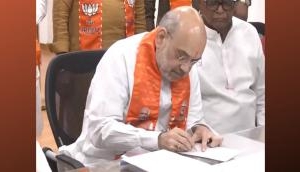
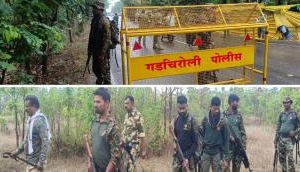
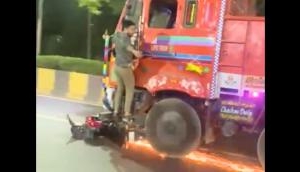
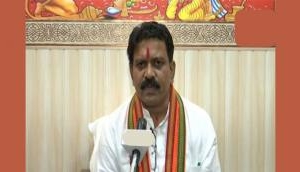
![BJP's Kapil Mishra recreates Shankar Mahadevan’s ‘Breathless’ song to highlight Delhi pollution [WATCH] BJP's Kapil Mishra recreates Shankar Mahadevan’s ‘Breathless’ song to highlight Delhi pollution [WATCH]](http://images.catchnews.com/upload/2022/11/03/kapil-mishra_240884_300x172.png)

![Anupam Kher shares pictures of his toned body on 67th birthday [MUST SEE] Anupam Kher shares pictures of his toned body on 67th birthday [MUST SEE]](http://images.catchnews.com/upload/2022/03/07/Anupam_kher_231145_300x172.jpg)






